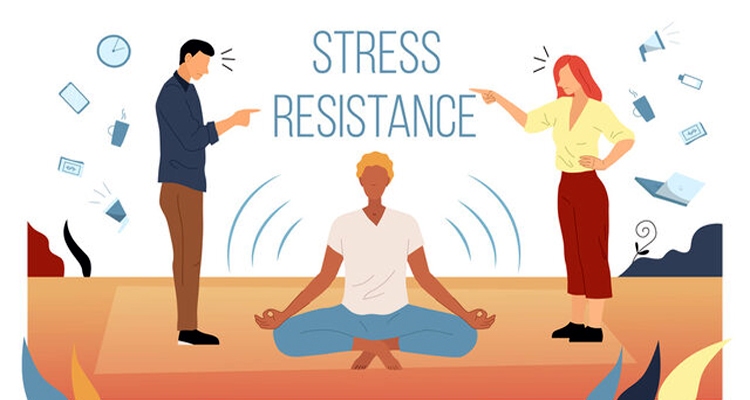Key Secrets of Stress Resistance
Nowadays we all have a lot of reasons to be stressed. Just a few years ago, things were different. Not that there was no reason for alarm, but life was more measured and somehow more logical. Everything was clear: where to go to school, where to work when to start a family, where to enjoy promising live betting offers, where to go on vacation. All the stages of life were written out years in advance. Now one of the most important qualities of the psyche is stress resistance. It’s difficult to survive without it.
Also Read:
- How Stress Effects Your Sleep and What You can do to Improve it
- How Stress is the Hidden Cause of Weight Gain and How to Fight It
What Is Stress Tolerance?
Stress resistance is a soft skill. It’s the basis of success because it allows you to abstract away from irritating factors and protects you from burnout. It has different levels that show the ability to cope with difficulties and act logically despite external stimuli:
- High – a person reacts little to stress, it has almost no power over it.
- Medium – a number of events can knock the ground out from under them, but the balance is quickly restored.
- Low – the reaction to stress is sharp, the person is literally paralyzed, he cannot make decisions and function.
Also Read: 5 Ways Traveling Benefits to Your Mental Health
What Stress Tolerance Consists of
Stress tolerance goes hand in hand with low emotionality. But you shouldn’t artificially underestimate your sensitivity, it can cause complete indifference to life and depression. Not everyone has a high stress tolerance, but only those who can boast:
- The ability to make predictions: this avoids unpleasant surprises and surprises that can knock you off balance. As a result, the reaction to these events changes, and gradually stresses affect the psyche less and less.
- Multitasking. It helps to continue daily work even when some problems arise. And all thanks to the increased resilience of the nervous system.
- Having the experience of living under stress. This helps to cope more quickly and easily with new shocks: with each episode, the nervous system develops a new immunity.
- The desire to cope with stress as soon as possible. Those who are truly motivated to solve the problem cope with everything faster. If there is no motivation, anxiety can linger for years.
- Confidence in their abilities and normal self-esteem. Uncertainty and low self-esteem makes a person react acutely to the slightest shock. The culprit is the fear of not coping with the situation, which drives you into a corner even in small problems, to say nothing of something significant.
Also the level of stress resistance is influenced by the person’s position in life and the principles to which he adheres. They determine his desire to be responsible for his actions, the ability to solve problems and much more.
Also Read: This is How COVID-19 Changed the Global Healthcare Industry
Causes of Low Stress Tolerance
- A difficult childhood
Usually if there was violence in it. When a child is punished for every fault, his psyche suffers. - Lack of experience
If a person is immersed in an unfamiliar environment, he becomes nervous and makes mistakes that in a normal environment would never commit. - Health problems
A healthy person is always more optimistic than someone who has some diseases. - Features of the psyche
The brain is a complex mechanism, with unique settings. Many people are simply prone to neuroses and other disorders, getting rid of which is not so easy. - Character specifics
Low self-esteem inevitably leads to a bad mood and pessimistic views of the world. And such a person is unlikely to have a high resistance to stress.
All of this list can be influenced: take up treatment, take up sports, take courses to improve self-esteem, etc.
Also Read: Importance of a Balanced Diet in Dubai for a Healthy Lifestyle
What to Do if You Cannot Cope With Stress: How to Develop Stress Resistance
Stamina comes in handy in any situation. Stress-resistant employees achieve promotion faster and cope with the work more effectively. And in normal life, people are drawn to such people, because they are more pleasant to talk to.
Stress destroys the psyche, and if it’s present in life regularly, it can also ruin physical health. All this happens not at once, it accumulates year after year. As a result, the body is depleted, not of its individual organs, but of the body as a whole. It’s proven that stress-resistant people live longer.
Therefore, it’s in everyone’s interest to become like that. To do this, the following rules should be followed:
- Control your sleep, it must be qualitative and full
The health of the nervous system depends on it. Remember, it’s not enough to sleep 6 hours a day! The optimal duration is 8 hours. - Rest Regularly
And let this rest be of high quality. Take every opportunity, whether it’s a vacation or a couple of hours after work. Find interesting activities, go out of town, turn off the phone. - Find a Hobby
If you have something to do, it distracts from your worries and regulates your nervous system.
Adhere to a healthy lifestyle, do sports, eat right, control the amount of vitamins in your diet. Especially important to pay attention to vitamins B and D, as they are related to the health of the nervous system. Potassium and magnesium are also good for the nervous system. - Don’t Think About What’s Already Gone
Self-mobilization won’t make you healthier or get rid of an old problem. It’s better to focus your efforts on what needs your attention now. - Don’t Accumulate Negative Emotions
They are poisonous and poison you from within. Try to get rid of the negativity with all your might. - Understand what you are strong in, and what competence is lacking
This will help improve self-esteem and understand the direction to work on themselves to improve stress resistance. - Don’t Think About What Others Think of You
Just accept the fact that you can not like everyone, and therefore there is no point in trying to please them. - Start Writing Down Your Thoughts and Experiences
It’s especially important to record the events that led to negative reactions. This will help you gather small statistics for analysis and later understand what type of situations put you under more stress. - Don’t Stop Learning
As you improve your skills, you’ll gain confidence and you’ll find it easier to cope with difficulties when they arise.




